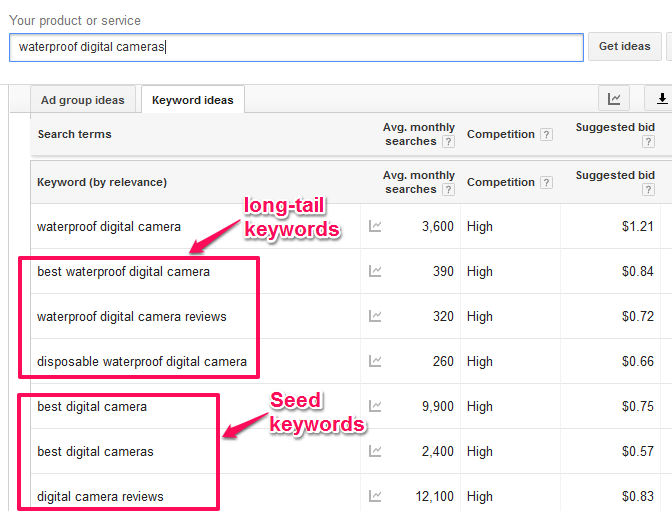Unlocking the Key(word)s to SEO
There are a number of factors that contribute to a website’s search engine ranking. But the most important is the use of keywords. Keywords are words or phrases that people use when searching for specific information, products, or services online. The frequency and context of their occurrence on a website will indicate its relevance to the search engine. Once a search term is typed into a search engine, the engine uses proprietary algorithms to process the keyword and present a list of relevant websites. The more relevant the site is, the higher it appears in the results.
While the concept of keywords is relatively straightforward, ranking for popular keywords and terms is more art than science. It used to be that a website that was stuffed with keywords was able to contribute to better search rankings. However, this led to lazy, and exploitative practices. As a result it has completely changed the algorithms that search engines use and the search optimization techniques websites must leverage. Selecting the right keywords can be a time-consuming process of trial and error to find what works best for your website. But the basics are easy to understand. We will walk you through some of the theories, practical techniques, and tools. You can use these to help maximize your search engine result page rankings.
Let the Research Begin!
Like any project, the success of your SEO efforts will largely depend on the up-front planning. This is done to help map out where to best focus your efforts. One of the ongoing and ever-evolving part of your role as a marketer should be thoroughly researching your keywords. You have to know which ones receive the most traffic. In addition to that you need to compare them against those of your competitors and inform the continual iteration of your content. Remember that it's more important to bring the right visitors, not just any visitors, to your website. That will result with higher conversion rates. People use various tools for keyword research, such as Google's free Keyword Planner. There are various other robust and effective software tools designed specifically for this task. The popular Micro Niche Finder is used by many in the SEO world. Another similar tool that can offer access to some potentially valuable keyword data is Market Samurai. For example, using Google's free Keyword Planner, you can enter the topic of your content and click "Get Ideas". It will show you a list of keywords that Google recommends based on previous searches: 
Image source.
Not all Keywords are Created Equal
Creating content for SEO is all about meeting the needs of your audience. If your content is useful, compelling, add value, and targets specific keywords then it's more likely to be read, shared, and engaged with. This will then increase the perceived relevance and authority of your content. Moreover it will help to improve its search engine result page ranking for those keywords that you targeted. But keep in mind that keyword placement must not be done haphazardly. It is just as important to decipher the importance of keywords. Importance depends on the number of people performing searches using a given keyword. The competitiveness or volume of searches a keyword receives can also prove challenging in your efforts to develop desirable rankings. Practice discretion when determining competitiveness. Competing against authoritative sites is possible, but could also prove to be an uphill battle over the long haul. Alternatively, some websites make it their focus to have a balance. They'll focus on less competitive keywords while incorporating moderate to highly competitive ones. One of the most effective ways to increase your click-through rate is including your top keyword in your page title and headings. That's how your SEO performance improves.
"On the average, five times as many people read the headline as read the body copy. When you have written your headline, you have spent eighty cents out of your dollar." —David Ogilvy
By this (albeit approximate) measure, you should spend a disproportionate amount of your time crafting as strong a heading as you can before you proceed into the rest of your content. A strong heading that grabs your audience's attention becomes increasingly more important as you compete with other top results. This happens when your search engine result page rankings improve. According to Conversion XL, headings that include numbers and/or address specific reader needs will perform better over 50% of the time:

Chasing Your (Long) Tail
The use of long-tail keywords is becoming increasingly common as marketers are becoming savvier about the buying habits of their prospective customers. Long-tail keywords are those four-word or longer search terms that are very specific in what they ask. They are often entered into search engines in the form of a question. When a prospective customer uses a highly specific search term, it’s more likely that they’re near the end of their buying cycle. They are looking for the exact thing they need to fulfill their needs. In most cases, these very specific searches are more likely to convert to sales than more generic ones. These tend to be more geared towards the higher-level research that prospects do before making their buying decision. It can be more challenging to write and include long-tail keywords for your website. The good news is that their specificity tends to improve their rankings on search engines. The prospects who find your website through those terms are far more likely to buy your product or service. The return on the investment of your time to write them is significant.
Let's illustrate this with an example. Let's say that your business is looking to redesign and redevelop their website. And you're looking for an agency to partner in the process. If you're early in your buying cycle, you might search for more general terms -- design agency, development agency, or web agency. But now let's say that you're further along in your process and your management team has decided that they would like to move their website onto the Drupal platform. In this case, you might be searching for more specific terms. For example, drupal design agency, Drupal development agency, or Drupal web agency. And if you'd prefer to work with someone local to you, then you might add your city to it. For example, Vancouver Drupal design agency, Vancouver Drupal development agency, or Vancouver Drupal web agency. In all of those last examples, your search engine result page will include very specific and very targeted results. ImageX will be among them.
People First, Search Engines Later
SEO helps, but better content is always best. Keywords are important in website optimization, but again, overuse or careless placement is considered an outdated practice. Today, websites breaking this protocol usually end up being penalized. Sometimes they're even de-indexed and removed entirely from a search engine’s results. One rule of keyword placement is to think "natural”. Keeping pages on the side of appearing natural is what search engines like to see. Putting your visitor first by crafting worthwhile content, and then finding places where a keyword would naturally appear, is sometimes referred to as "sprinkling." Sprinkling keywords can be done in various ways, and if done correctly may result in first-page rankings. It’s often said to write content for people first and optimize for search engines later. The sentiment behind this axiom is that the value of the content is what matters most. Just create compelling content and then refine it to sprinkle your search terms in. So what is the most effective way to write for people first? What can enhance communication of your ideas in a way that connects with your audience? Find the voice of your brand. And what is the voice of your brand?
- Your voice is how people within your brand communicate with your readers. How do you want to convey your messages? Do you want to use a formal or informal style? Your voice will show that...there are real people behind your content who care about their readers. And your readers will notice it.
- Your voice will differentiate you from your competitors. Your loyal readers will eventually familiarize themselves with the way you write. Therefore your writing must connect and resonate with them.
- Your voice will build trust within your community. And once your community knows and trusts you, they’ll know that they can rely on you to provide value.
- And when people trust you, it will easier to persuade them.
Wrapping Up
Keywords are indeed necessary and important in website optimization. They play a large part in helping your site achieve higher rankings. Being diligent in your research and using the right keywords in the right places can generate that much-needed commodity -- traffic. But most of all, remember who your audience is and always strive to produce high-quality content. It provides value to them as this is the best, and most future-proof, SEO strategy of all.







